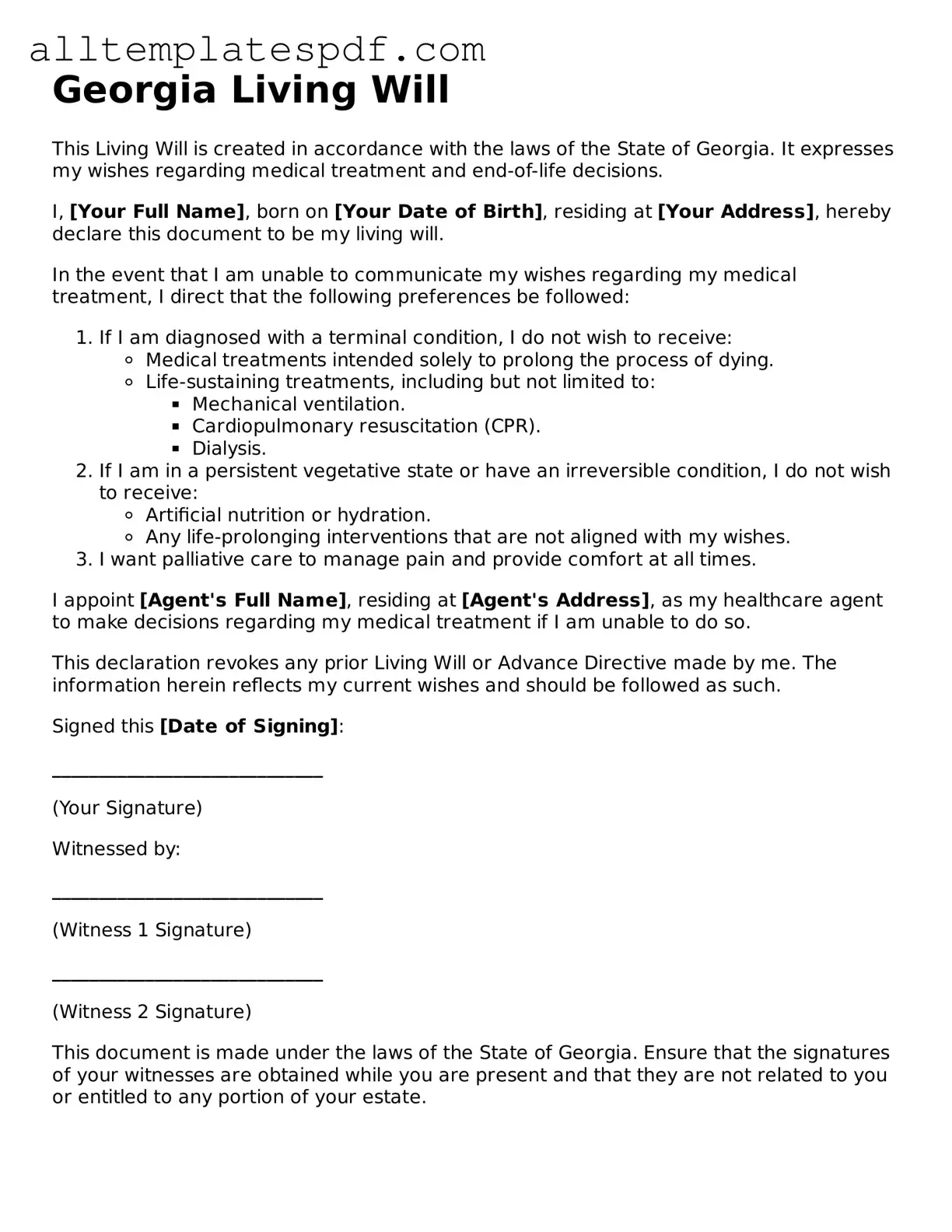Blank Living Will Template for the State of Georgia
A Georgia Living Will form is a legal document that allows individuals to express their wishes regarding medical treatment in the event they become unable to communicate their preferences. This important form ensures that your healthcare decisions are honored, reflecting your values and desires. To take control of your future healthcare decisions, consider filling out the form by clicking the button below.
Open Editor

Blank Living Will Template for the State of Georgia
Open Editor
Fast and easy form completion
Complete Living Will digitally — fast and easy.
Open Editor
or
↓ Living Will PDF Form
